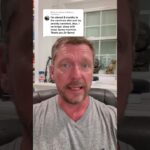High blood pressure or hypertension is a chronic disease affecting more than 60 million Americans, and it is the most common medical problem clinicians face. Hypertension causes end-organ damage in the kidneys, plates, and brain, leading to cardiovascular and cerebrovascular diseases. It is a disease of the endothelium or blood vessels, the largest organ in the body. In this article, we will discuss the 15 ways to reduce your blood pressure from the book “The Hypertension Handbook for Clinicians and Students” by Dr. Mark Houston, including realistic strategies for a therapeutic lifestyle change.
Dr. Houston’s book discusses the etiology and root causes of high blood pressure. Insulin resistance, belly fat, electrolyte, and kidney dysfunction, abnormalities of vascular smooth muscle cells, endothelial dysfunction, vascular inflammation, and coagulation imbalances are some leading causes of hypertension. However, therapeutic lifestyle change is the primary way to reduce blood pressure.
Therapeutic lifestyle changes include managing stress, getting enough sleep, exercising regularly, taking micronutrient supplements, and prioritizing protein intake. Calcium channel blockers, ACE inhibitors, angiotensin receptor blockers, thiazide diuretics, and beta-blockers are some of the widely prescribed medications used to treat hypertension. A healthy diet low in processed foods and industrial seed oils is also essential.
Elevated triglycerides and oxidized LDL are the significant reasons why blood pressure increases. On the other hand, insulin resistance and glucose intolerance drive many pathophysiological abnormalities that occur in poor cardiovascular health, leading to hypertension.
The kidneys are a causative factor driving hypertension, but they are also a target of hypertension. Electrolyte and kidney dysfunction, dehydration, creatinine, urea nitrogen, and uric acid imbalances can contribute to hypertension.
Abnormalities of vascular smooth muscle cells also contribute to hypertension. Impaired glycation and the whole glycome can compromise the endothelium, leading to endothelial dysfunction and erectile dysfunction.
Coagulation imbalances, pro-thrombotic states, blood viscosity, and iron overload play a role in thickening the blood, causing hypertension.
Vascular inflammation caused by poor dietary choices, visceral adiposity, sedentary lifestyles, and processed foods can lead to hypertension. Endothelial dysfunction can occur due to all of the above factors.
In conclusion, hypertension or high blood pressure is an endothelium disease caused by poor lifestyle choices, diet, and other environmental factors such as stress. It is a significant cause of cardiovascular and cerebrovascular diseases, affecting more than 60 million Americans. Prioritizing a healthy lifestyle and diet is crucial for overall cardiovascular health. The 15 natural strategies discussed in Dr. Houston’s book, “The Hypertension Handbook for Clinicians and Students,” can be easily incorporated into daily habits to promote healthy blood pressure levels.
*****
*****
Summary of Transcript:
The video discusses Dr. Mark Houston’s book, “The Hypertension Handbook for Clinicians and Students,” which reframes high blood pressure as a disease of the blood vessels or endothelium. It talks about how insulin resistance and abdominal or visceral adiposity are the root cause of all the sequela linked to elevated blood pressure. Hypertension affects 30% of adults in America and is the most common medical issue. Natural strategies can reduce blood pressure, and the video provides 15 ways to do so. The video emphasizes the importance of at-home blood pressure cuffs and testing first thing in the morning. The harmful effects of high blood pressure on end organs like the kidney, heart, and brain are also discussed. The video reveals various factors that cause high blood pressure, including elevated triglycerides, insulin resistance, glucose intolerance, belly fat, electrolyte, kidney dysfunction, abnormalities of vascular smooth muscle cells, coagulation imbalances, and vascular inflammation. The largest organ in the body is the endothelium, and hypertension is a disease. Finally, the video thanks the viewers for watching.
*****
Summary of Description:
The content discusses Dr. Mark Houston’s 15 ways to lower blood pressure, with additional resources such as a book, a blood work cheat sheet, and health tools like a berberine fasting accelerator, a metabolism book, and nasal wash kits. It also includes recommended products such as high-protein snacks and breath-suitable strips.
*****
Source Description
Dr. Mark Houston shares 15 ways to lower your blood pressure.
Support your Intermittent Fasting lifestyle with the Berberine Fasting Accelerator by MYOXCIENCE: https://bit.ly/Berberine-Fasting-Accelerator.
Save with code Podcast at checkout.
Book by Dr. Mark Houston, MD: https://amzn.to/3Wk6YSf
Get the Blood Work Cheat Sheet: https://courses.highintensityhealth.com/blood-work-cheat-sheet
————-Health and Sleep Tools You NEED!———————–
Get this Book: https://amzn.to/3pEfvmZ
Berberine Fasting Accelerator: https://amzn.to/3NWv97i
Eat like your life depends on it Tee Shirt!: https://bit.ly/3dEHM3e
Best High-Protein Snax: http://bit.ly/Carnivore-Crisps
Best Mouth Tape (Nexcare): https://amzn.to/31qJayh
NeilMed Nasal Wash Kit https://amzn.to/3EUQaYE
Breath Right Strips: https://amzn.to/31t5VSl
A Metabolism Book Should Have:https://amzn.to/2jUiAh5
—————————————–Show Notes————————————–
0:00 Intro
